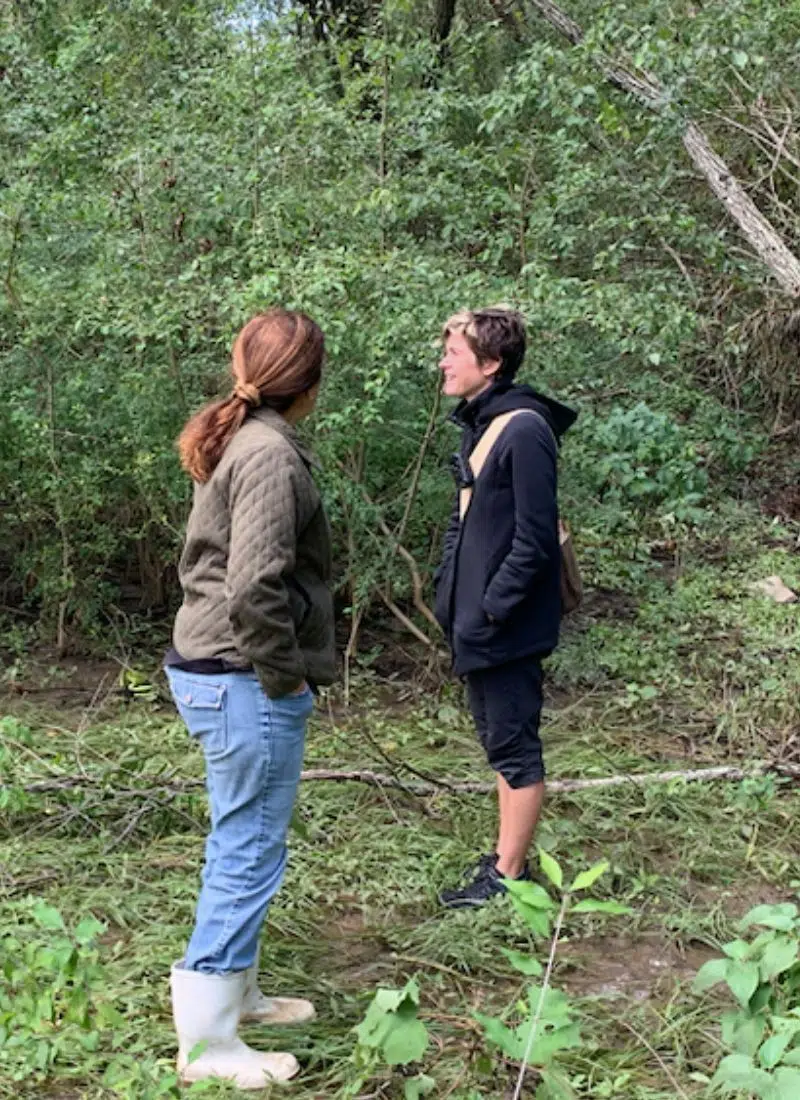Why is Victoria concerned about marshes?
Growing up in coastal Louisiana, every summer my family would go visit my mother’s homeplace in La Fourche Parish. We would surf fish off the barrier island Grand Isle. The beach there, this wisp of an island, is not like Myrtle Beach or the Jersey Shore. It’s local. It’s a bit rough around the edges. It smells of saltwater and dead fish. And yet, it was our island. Every year we visited, we had to search for the beach—it always seemed to show up in a new place. One year it was behind a thick hedge of tall grasses. Another year, it was hiding below concrete bricks shaped like an amphitheater. Another year, Christmas trees formed the barrier reef.
Eventually, I learned these were efforts to fight erosion, the washing away of the beach. However, I didn’t understand the larger problem that all those marshes we drove over to get to the beach were suffering and withering away as well. From heel to toe, the boot of Louisiana is subsiding, and the levees along the Mississippi River have a lot to do with that situation.

Levees and other man-made interventions have huge consequences for people, land, water, and wildlife that depend on the River.
Louisiana has lost more than 2,000 square miles of land—nearly the size of the state of Delaware—in the Mississippi River Delta and along its coast. Football fields of marshland are vanishing at a rate of one every 100 minutes. The devastation of this vital natural infrastructure for a coastal region is brought on by a variety of factors including: levees preventing sediment distribution, upriver dams holding back that sediment, and invasive species disrupting natural habitats. These and other man-made interventions on the Delta and its connected coastline are having huge consequences for people, land, water, and wildlife that depend on it.

Victoria (right) surveys an area that is losing land within the Mississippi River Delta in Louisiana.
Will You Help?
When you give to the Mississippi River Network you are helping us implement solutions that help communities from New Orleans up to the headwaters of the Mississippi River in Minnesota. We work with River Citizens and member organizations, like Victoria and A House Unbuilt, to help protect and restore vital River ecosystems including wetlands and marshes. Will you make a gift today to help the wellbeing of the people, land, water, and wildlife of the River?
Step 1
Become a River Citizen
Yes! The River can count on me!
I am committed to protecting the Mississippi River. Please keep me informed about actions I can take to protect the Mississippi River as a River Citizen, and send me my free e-book!, Scenes From Our Mighty Mississippi!
Step 2
LEARN ABOUT THE RIVER
We protect what we know and love. As a River Citizen, you’ll receive our email newsletter and updates, which offer countless ways to engage with and learn more about the River. You can also follow us on Instagram, Facebook, X (Twitter) , and YouTube, where we share about urgent issues facing the River, such as nutrient pollution, the importance of floodplains and wetlands, and bedrock legislation such as Farm Bill Conservation Programs.
Step 3
Take Action
There are many ways you can jump in and take action for a healthy Mississippi River. Our 10 actions list includes simple steps you can take at any time and wherever you are. Check out our action center for current action alerts, bigger projects we are working on, and ways to get involved.

